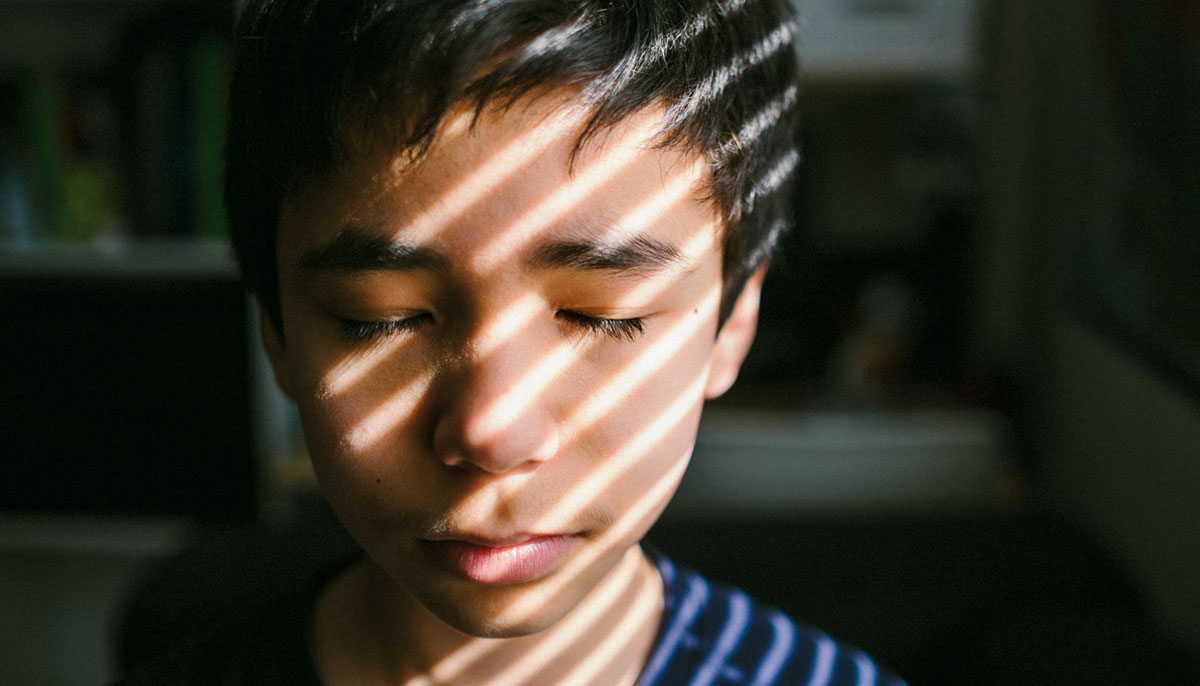As an adolescent medicine pediatrician, one of the most rewarding parts of my job is the privilege of sharing the joy of mindfulness with adolescents. Adolescence is a wonderful time of life, filled with new growth and experiences, and the opportunity to develop lifelong habits of stress management and healthy coping. At the same time, growing up right now is profoundly challenging. As parents and caregivers who care about adolescents and about our society’s future, how can we support their growth into mindful, caring adults?
Take My Advice—I’m Not Using It
One frequent question I get asked is, “How can I get my teenager to start meditating?” My reply is, “Tell me about your own personal practice.”
Teens have a very powerful “BS-meter,” that is, they know right away when adults are telling them to do something that they themselves are not doing. Adults who aren’t following their own advice come across as hypocritical and disrespectful, and severely undermine the message and intention they may have.
My mentor in adolescent medicine, Dr. Kenneth Ginsburg, said that what we as adults do matters way more than what we say to teens. Teens don’t need more adults telling them to meditate who are not practicing themselves. They need adults who can align their words and their actions, and who can embody mindfulness in their lives. If you want to offer your teen the gift of mindfulness, please start by developing your own deep, authentic practice.
Your Presence Is Medicine
Sometimes when we’re with a young person in crisis, we think that we have to say or do the right thing in order to help. What I’ve learned is that teens may not remember what we said or what we did. What they will remember is that someone was really there for them in a difficult moment. As Zen master Thich Nhat Hanh said, “If you love someone, the greatest gift you can give them is your presence.”
We can set our intention to give our teens our full, open-hearted presence, and at the same time we can admit that it’s not always so easy to give! One of the hallmarks of adolescence is strong emotions, and any parent or caregiver of a teenager knows that in the heat of a tough conversation, our own emotions can get heated as well. In these moments, our own mindfulness practice can be our anchor. Our own skills of deep listening and compassionate speech can help us be our best, help our teen feel truly heard, and restore communication. Sometimes, this means breathing more, speaking less, and just listening, without judgment, without advice-giving, and with unconditional love.
I heard these wise words from an Indigenous elder in British Columbia: “When someone is hurting, just your presence is medicine.” When a teen we care about is in pain, just being fully there for them without judgment, without advice-giving, and with unconditional love, is medicine.
Why Should I Care?
One of the most common questions teens ask about mindfulness is, “Why should I care? What does this have to do with my life?” When I’m working with a teen, I want to try to get to know what they are most interested in. What are their passions, their goals, their stresses, their fears? Are they an athlete? A musician? An artist? What is stressing them out? Is it school? Family? Friends? Racism or homophobia? Whatever it is, I try to meet the teen where they are, connect with them on a human level, and offer an authentic glimpse of how mindfulness could be relevant to their own lives. Maybe I’ll mention a famous mindful athlete, or describe how another teen I work with practices mindfulness to cope with test anxiety at school. Occasionally, in the right situation, I might even consider offering a small amount of skillful self-disclosure, sharing a story about how mindfulness has helped me in my own life, in a situation that might relate to the teen’s own difficulties.
Planting Seeds
One young person I worked with used to come to a drop-in mindfulness workshop I offered in an urban area of Vancouver. The only reason she attended, it seemed, was because she had nothing better to do, so might as well join us. She often looked bored, on her phone or whispering something to her sister, and after a few months of this, I wondered, “Is this a waste of time? Is she getting anything out of this?” Despite my doubts, I let her have her space, continued to invite her to join, and never gave her a hard time for “not paying attention.”
One day when I entered the community center, she walked up to me right away, with an excited smile on her face. “Dr. Zoom, I really want to tell you something that happened to me,” she said. “I had to do a medical procedure, and I started freaking out, and the person told me they’d have to cancel unless I calmed down. And I didn’t want them to cancel it, because I knew I’d have to start over. So, I said, ‘Wait a minute, let me try this thing that Dr. Zoom taught me.’ And I closed my eyes. And I heard your voice, doing that ‘breathing thing’ that you do. And by the time I opened my eyes, the procedure was done!”
Through this experience, she discovered a power she had inside her, which showed up in her life when she really needed it. What I learned from this was the power of “planting seeds.” As long as I show up with authenticity and integrity in my mindfulness teaching, I can have confidence that at least some positive seeds are being watered and they will show up in my students’ lives when needed.
Healing the World
Mindfulness is not a substitute for addressing what in medicine are called “social determinants of health,” that is, societal and structural factors such as inequality, racism, discrimination, poverty, and violence in families and communities. Teens are not responsible for these conditions, and yet these conditions have profound impacts on their health and development. When I’m teaching mindfulness to adolescents, I hope that the practice can help them cope with and be more resilient to these factors. At the same time, we as adults have a responsibility to improve the conditions that young people grow up in, to give them the best chance of developing into the caring, compassionate, mindful adults that our world so desperately needs right now.

